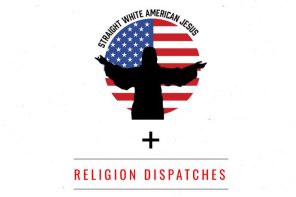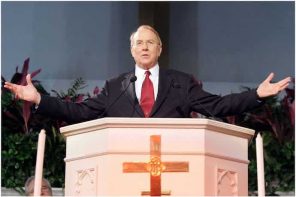The casino gambling industry that began as a clutch of mob-grown casinos in Vegas and Reno is now said to sport between 850 and 900 casinos in 40 states. This, according to critics, has not only wreaked economic and social havoc across the country—increases in crime, bankruptcies and suicides—but has compelled religious communities to rethink their historic approaches to the ancient debate over the morality of gambling.
New approaches have quietly developed in the shadows of the so-called culture wars that have pitted religious groups and factions so fiercely against one another for decades. Undeterred by this history of conflict, the organized religious community has grown in its unified opposition to what they now term “predatory gambling,” maintaining a remarkable comity in the process. “It is a myth” says Leslie Bernal, executive director of DC-based Stop Predatory Gambling, “that liberal and conservative religious groups can’t get along.” The same, he says, goes for the many religious and secular groups that work comfortably together all the time. “This is something I take for granted.”
The transformation of the religious community’s understanding of and response to the situation turns on two key points. One is distinguishing between what they call “predatory” forms of gambling and “social gambling,” such as church bingo nights, buddies playing poker, or the office football pool.
“Predatory gambling,” Bernal says, “is the practice of using gambling to prey on human weaknesses for profit.” He points to the highly addictive nature of contemporary electronic slot machines and video poker as the primary source of the profound “social costs” related to gambling addition. “Slots are,” he says, “designed to make you play as fast as possible for as long as possible,” and in gambling industry parlance, “to play to extinction.”
The other key transformational understanding is a growing recognition that state-sponsored casino gambling is incompatible with constitutional democracy itself. This argument is being championed by eminent historian of the civil rights movement Taylor Branch, who says that raising revenue via state-supported gambling addiction is a betrayal of the citizens and an avoidance of critical questions about our democracy: what do we want our government to do and how we are going to pay for it? “State-sponsored predatory gambling is essentially a corruption of democracy,” he said recently.
“[T]his violates our social compact, and the trust we must have in the belief that we are all in this together,” he continued. “And the first step away from it is to play each other for suckers. We’re going to trick them into thinking they are going to get rich, but they are really going to be paying my taxes.”
One of the reasons for the rapid growth of the casino industry has been the willingness of cash-strapped state governments to hear what they want to hear and disregard the rest. In light of this alliance between industry and government Laura Everett, associate director of the Massachusetts Council of Churches (a century-old coalition of 1700 Protestant and Orthodox churches) says that their priority has shifted from an emphasis on gambling as a matter of personal responsibility, to confronting the issue as a matter of good government.
“State-sponsored gambling,” she says, “is not an ethical way to raise revenue, because it hurts the poorest and the most vulnerable.” Clergy, she says, understand this because they are “on the front line of the brokenness in their communities” and because “most clergy have interacted with gambling addicts.”
The Battle of Massachusetts
Casino Free Mass (CFM), a formal coalition comprising religious right, left, and secular organizations includes, among others, the League of Women Voters, the National Association of Social Workers and the National Association on Mental Illness, Massachusetts Catholic Conference The Massachusetts Family Institute, (the state political affiliate of James Dobson’s Focus on the Family Action) the Massachusetts Council of Churches and the Boston Chapter of the Muslim American Society.
CFM epitomizes the transformational nature of the debate, highlighting both the predatory nature of gambling and the damage it does to democracy. They also happen to mirror the national coalition formally opposed to state-sponsored gambling; while religious and other demographics vary from state to state, the cohesiveness of the Massachusetts coalition is, Bernal says, typical.
Last year the group played a high profile role in defeating—by a better than 2-1 margin in the legislature—a major casino development proposal by the popular Democratic governor, Deval Patrick, which was backed by the state’s two major newspapers, the Boston Globe and the Boston Herald. Laura Everett said that the statewide media generally failed to hold a fair public discussion, which magnified the importance of smaller newspapers and bloggers. “The churches,” she added, “provided forums for public discussions that the media did not.”
“There is a long history of the churches being public forums for discussion,” Everett said. What made this particularly important as a factor in driving public conversation was that there were “core groups of people who know their church’s teaching.”
“People were ready to have that conversation.”
This will no doubt be an important factor this year when Governor Patrick introduces a fresh casino proposal in the midst of a continuing budget crisis and a friendlier legislature due to the election of a new, pro-gambling Speaker of the House. Governor Patrick and his allies have tended to play down the seriousness of the social costs in light of what they claim will be the economic benefits. Whether there is much if any economic benefit remains a highly debated issue. What isn’t debatable, however, are CFM’s concerns about addiction and democracy.
Sacrificing Citizens
Slots were legal in two states in 1985 (Nevada and New Jersey). Today there are 800,000 machines in 40 states. The new generation of electronic “slots” do not even use coins. You purchase and swipe an electronic card like you do at the ATM. The addictive nature of the electronic slots and their role as the main revenue stream of the gambling industry is not widely understood. Industry data show that 70-80% of the revenue of casinos come from these machines, and investors are not very interested in casinos without slots. The rapid expansion of slots and the casino economy led Congress in 1999 to commission a major study of their economic and social impact.
Edward F. Saunders Jr., Esq., executive director of the Massachusetts Catholic Conference, summarized some of the major findings in testimony before the Massachusetts legislature last year. “[G]ambling, whatever its benefits,” he said, “came with ‘undeniable and significant costs.’” These included increases in crime due to “desperate gamblers committing illegal acts to finance their problem and pathological gambling.” These crimes included forgery, credit card theft, domestic violence, child abuse and neglect, alcohol and drug offenses.” He also cited increases in homelessness and divorce.
Similar data have piled up from numerous reputable sources since the landmark Congressional study. Casino Free Mass board member Leo Maley, writing in the Amherst Bulletin cited, for example, “a 213 percent increase in suicides (from 24 to 75) in the first two years after casinos opened” in Gulfport, Mississippi. “Such numbers,” he wrote, “are replicated elsewhere.”
In a powerful video recently posted by Casino Free Mass in anticipation of the next round of debate over introducing casinos in the state, a prominent medical researcher compares a multicolored brain scan of a cocaine addict about to receive a fix and that of someone sitting at a slot machine. The same sections of each brain light up in ways that are indistinguishable.
“I think it’s cowardly,” said Laura Everett. ”We are going to sacrifice our citizens. We know that there are people in Massachusetts who will become addicted. What Patrick is saying is ‘you are expendable.’”
While the trend in the industry is towards increasing predatory practices, Everett says that the “nostalgic view of the slot machine” leaves many people unaware of their malignant role at the center of the gambling industry, or that without slots there would be few if any casinos.
“Everything else,” Everett says regarding the surrounding casino “is bells and whistles.”




